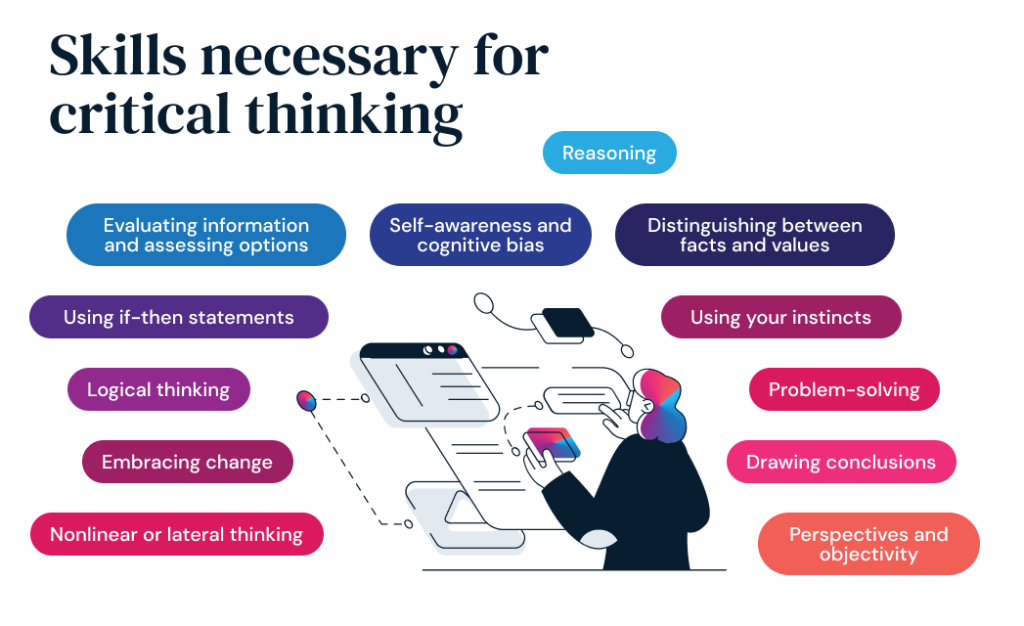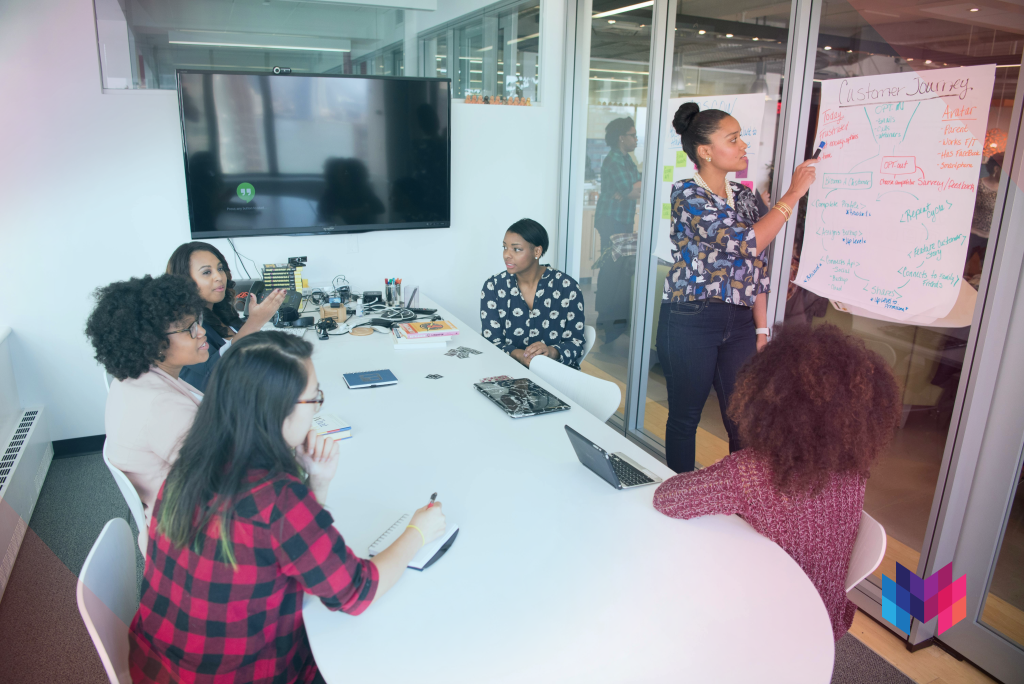Aristotle famously said: ‘It is the mark of an educated mind to be able to entertain a thought without accepting it.’ He was, of course, referring to critical thinking skills. Skills that we need to evaluate information and solve problems.
Through technology, the amount of information available today is overwhelming. Combine that with a world that’s experiencing unprecedented levels of economic uncertainty, political fragmentation, and continuing global security crises, and it’s clear that it’s more important than ever to use critical thinking to navigate our businesses and our lives.
Contrary to popular belief, being logical or intelligent does not necessarily make you a critical thinker. The good news, however, is you can develop this important skill so that you don’t simply accept information at face value and can use the processes involved in critical thinking to solve complex problems.
What is critical thinking?
Critical thinking is defined in various ways, but what all definitions have in common is they emphasise the importance of clarity and rationality. Probably the best-known definition comes from a statement written in 1987 by Richard Paul and Michael Scriven of the National Council for Excellence in Critical Thinking: ‘Critical thinking is the intellectually disciplined process of actively and skillfully conceptualising, applying, analysing, synthesising, and/or evaluating information gathered from, or generated by, observation, experience, reflection, reasoning, or communication, as a guide to belief and action.’
In simpler terms, it’s being able to judge the quality of something, from a political statement to the conclusion of a research paper, through a series of actions ranging from asking questions to analysing biases and considering other interpretations.
Critical thinking is regarded as a metacognitive skill – a higher-level cognitive skill that involves ‘thinking about what you’re thinking’. It’s like having a ‘mindful’ awareness of what you know, what you don’t know, how you draw conclusions and how you learn.
Skills necessary for critical thinking
CEO, organisational behaviourist and bestselling author Dr Jim White identified several skills necessary for critical thinking:

Dr White says the secret to incorporating this list into your life is through practice – and lots of it. The more your practice, the easier and more intuitive thinking critically will become.
Why is being able to think critically important?
Critical thinking is essential in business because it helps individuals and organisations make informed and rational decisions based on facts, data, and evidence. It allows business professionals to analyse complex problems, identify potential solutions, and evaluate their effectiveness before taking action.
Critical thinking skills also enable individuals to anticipate and adapt to changes in the marketplace, make sound financial decisions, and effectively communicate with colleagues, clients, and stakeholders. Ultimately, the ability to think critically can lead to improved performance, increased innovation, and a competitive advantage in the business world.
How to start thinking critically
You can develop critical thinking skills by being more self-aware about your thought process, morals, values and beliefs. Take note of how you receive, process and react to information, and be aware of your prejudices and how they can influence your solutions and decisions.
Before coming to a conclusion or making a decision, consider how others may feel about it and think through the implications of your decisions.
Active listening is fundamental to critical thinking. Listen carefully and pay attention to others and what they say. Equally important is evaluating evidence and asking questions to assign a fair value to a piece of information.
How critical thinking solves problems
We face problems daily – in our businesses, careers, and family lives – and critical thinking is crucial in solving them. Here are some common strategies you can use.
- Define the problem: Examine the root cause of the problem, what the problem really is, and the gap or barrier between where you are and where you want to be.
- Identify inconsistencies: Look for discrepancies between behaviours, beliefs, attitudes, and actions.
- Use your instincts: Coupled with informed guesses and brainstorming, intuition can lead to creative problem-solving.
- Ask why, what, how, where, and when: This helps to eliminate preconceived notions, challenge personal beliefs, and get the clearest and most objective picture of a problem.
- Evaluate the solution: Carefully consider several alternative answers to the problem before deciding how to proceed.
Barriers to problem-solving
Studies show being prone to biases, complacency, overconfidence, and stereotyping affects the quality of our thoughts and performance at work. Conversely, people who score high in critical thinking – a reflection of sound analytical, problem-solving, and decision-making abilities – report having fewer negative experiences in and out of the office.
Being unable to solve problems successfully at work depends on how you think. For example, egocentric thinking makes you view everything in relation to yourself, and personal biases affect your ability to analyse a situation and make sound decisions rationally.
Groupthink and social conditioning, or the desire to ‘fit in’ or agree with the majority, is another barrier, as is ‘drone mentality’, where you simply go through the motions as if on autopilot. This leads to a lack of spatial awareness and an inability to solve problems.
Learn critical thinking skills with MasterStart
Companies are increasingly under pressure to make the right decisions about their products or services, their impact on the environment, and how engaged their employees and customers are. Solving these business problems requires an established set of problem-solving and critical-thinking skills which, as we mentioned, do not come naturally to everyone.
Through MasterStart’s new Problem Solving and Critical Thinking online short course, aspiring and existing team managers will learn to confidently approach complex situations with a logical and systematic mindset, find creative solutions, and make well-informed decisions.
They will gain the practical skills, knowledge and self-confidence to evaluate problems holistically and objectively, enabling them to make decisions that contribute to organisational sustainability. Contact us today to book your place in this pioneering course.


